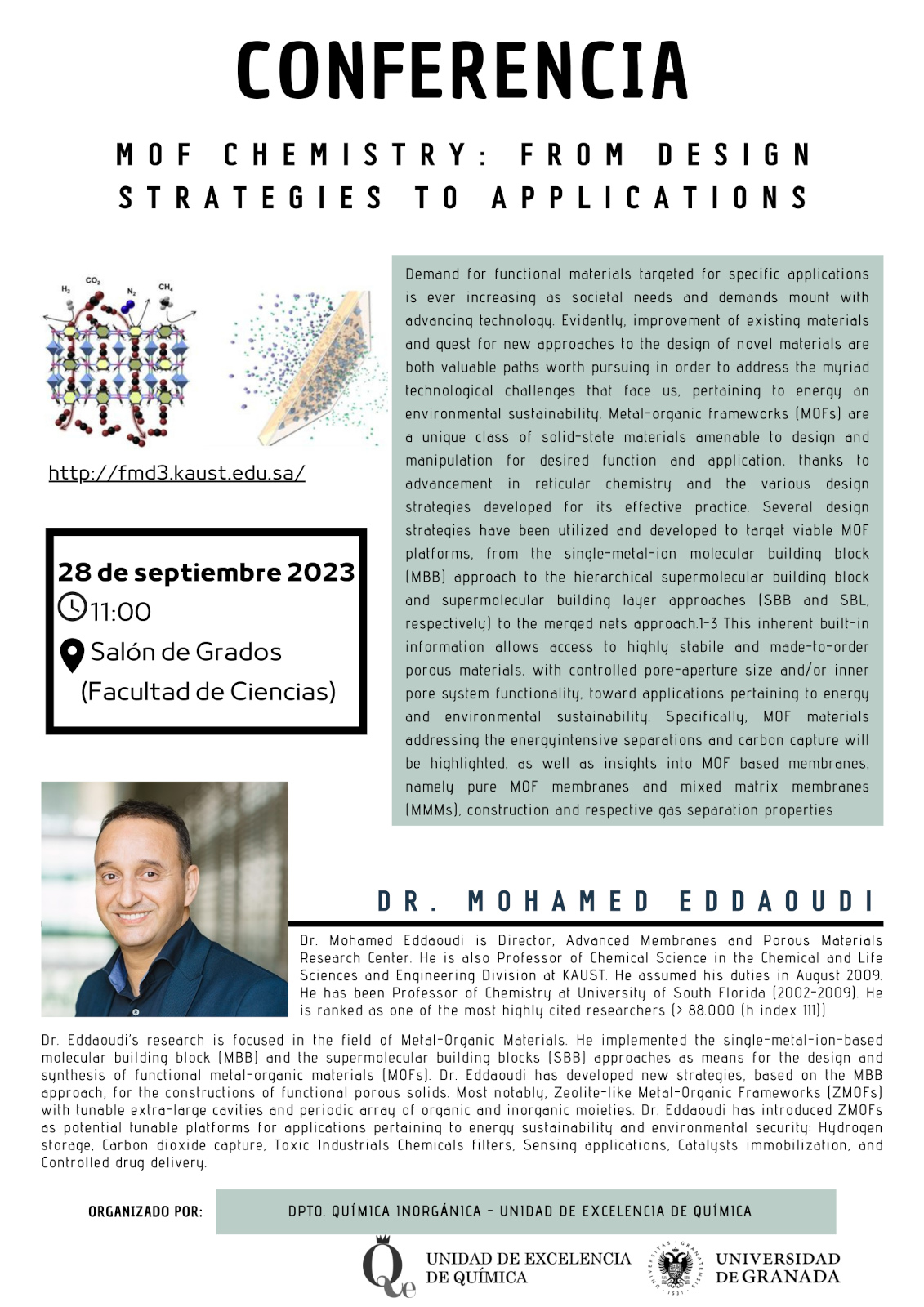Fecha: 28 de septiembre de 2023.
Hora: 11.00h
Lugar: Salón de Grados de la Facultad de Ciencias
Ponente: Dr. Mohamed Eddaoudi is Director, Advanced Membranes and Porous Materials Research Center. He is also Professor of Chemical Science in the Chemical and Life Sciences and Engineering Division at KAUST. He assumed his duties in August 2009. He has been Professor of Chemistry at University of South Florida (2002-2009). He is ranked as one of the most highly cited researchers (> 88.000 (h index 111)).
Demand for functional materials targeted for specific applications is ever increasing as societal needs and demands mount with advancing technology. Evidently, improvement of existing materials and quest for new approaches to the design of novel materials are both valuable paths worth pursuing in order to address the myriad technological challenges that face us, pertaining to energy an environmental sustainability. Metal-organic frameworks (MOFs) are a unique class of solid-state materials amenable to design and manipulation for desired function and application, thanks to advancement in reticular chemistry and the various design strategies developed for its effective practice. Several design strategies have been utilized and developed to target viable MOF platforms, from the single-metal-ion molecular building block (MBB) approach to the hierarchical supermolecular building block and supermolecular building layer approaches (SBB and SBL, respectively) to the merged nets approach.1-3 This inherent built-in information allows access to highly stabile and made-to-order porous materials, with controlled pore-aperture size and/or inner pore system functionality, toward applications pertaining to energy and environmental sustainability. Specifically, MOF materials addressing the energyintensive separations and carbon capture will be highlighted, as well as insights into MOF based membranes, namely pure MOF membranes and mixed matrix membranes (MMMs), construction and respective gas separation properties.





